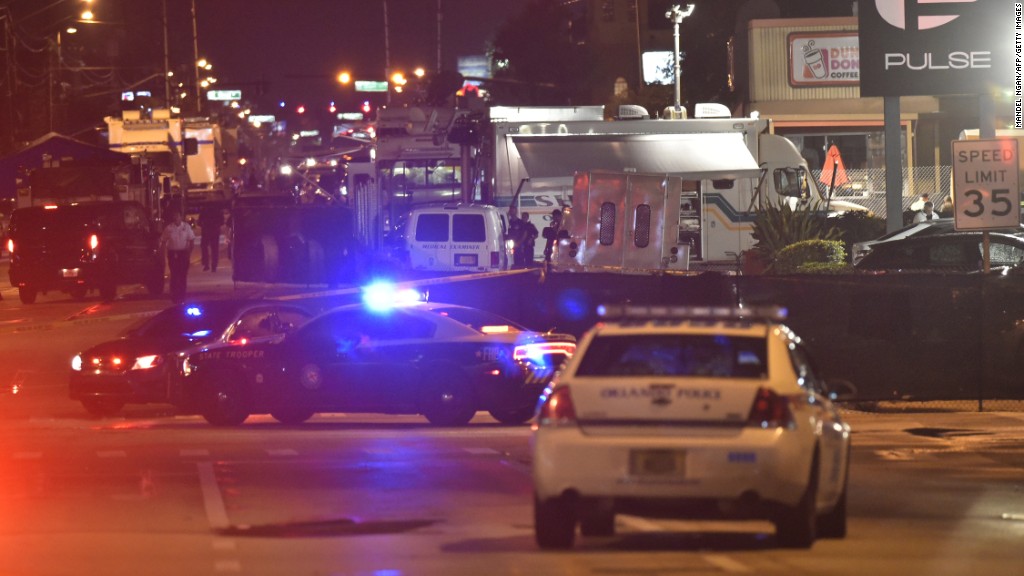
It's pretty easy to buy a gun in Florida, the scene of the deadliest mass shooting in U.S. history.
The Brady Campaign, a leading gun control group, gave 26 states an F in its 2013 state score card. Florida is among the biggest of those states, and by far the most densely populated, with its large cities and suburban sprawl.
Assault-style weapons, like the Sig Sauer AR-15 used in the Pulse Nightclub shooting in Orlando on Sunday, are legal for anyone in Florida who can pass a federal background check. The only caveat is the guns must be semiautomatic, and not full automatic like the machine guns used by the military and law enforcement.
Federal background checks are conducted by the FBI and are required for all purchases from federal licensed dealers. This applies to gun shops, where retailers make a living selling firearms. It does not apply to unlicensed private dealers, who frequent gun shows to seek out prospective clients.
Criminal history, drug use and mental illness are red flags that can prompt the FBI to reject an applicant -- though that happens in fewer than 1% of background checks.
Also, federal law sets a floor for oversight over gun purchases. And some states, such as California, Connecticut and New York, have state laws that require an extra level of screening. But Florida does not conduct its own background checks.
Related: Background checks: How they work
Florida is not alone. Most states do not require their own state-level background checks.
Florida does, however, require a state screening process for concealed carry licenses. Omar Mateen, the security guard behind the Orlando massacre, had a concealed carry permit for his Glock semiautomatic pistol, which he had at the shooting.
Mateen also passed an FBI background check, according to the FBI. This is despite having been twice investigated by the FBI as a potential threat, but then cleared.
Related: The recent rise and fall of the AR-15
Also, Florida does not have any limits on magazine capacity. Some states -- New York, Connecticut and Massachusetts, among them -- limit magazines to a capacity of 10 rounds. New Jersey also has a limit, at 15 rounds. But many states have no limit on magazine capacity.
This is an important distinction. Orlando police and the FBI haven't said whether high-capacity magazines were used in the mass shooting there. But they are preferred by mass shooters because they allow them to shoot lots of people without having to reload.
High-capacity magazines have been used in 34 mass shootings between 1984 and 2015, according to the FBI.
Related: Gun sales drive demand for high capacity magazines
Connecticut and Colorado passed state laws limiting magazine capacity since the mass shootings that occurred there in 2012. Connecticut caps capacity at 10; Colorado at 15.
Adam Lanza used an AR-15 with 30-round magazines at Sandy Hook Elementary in Newtown, Connecticut, where he murdered 26 children and educators. James Holmes used an AR-15 with a 100-round drum when he murdered 12 people at a movie theater in Aurora, Colorado.
But there's one law that makes Florida more restrictive than states like Texas, Kentucky and Louisiana. According to the NRA, Florida does not allow open carry, with or without a permit. That means in Florida a gun owner can't carry a weapon in public view.
Florida also requires a three-day waiting period for handgun purchases, according to the Law Center to Prevent Gun Violence, a gun control group.
